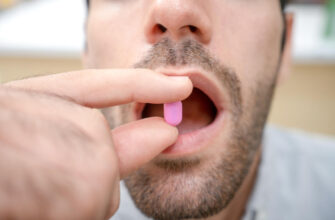For many, the morning ritual of a freshly brewed cup of coffee is as essential as brushing one`s teeth. It`s a comforting constant, a wake-up call, and sometimes, a lifeline. But what if this daily habit, seemingly innocuous, had a secret agenda when paired with a course of antibiotics? Recent research suggests a surprising interplay, one that could prompt doctors to ask not just about your medical history, but also about your favorite brew.
The Unseen Battle: Caffeine vs. Ciprofloxacin
A collaborative study from the Universities of Tübingen and Würzburg, published in the prestigious journal PLOS Biology, has cast a new light on how everyday consumables can subtly influence the efficacy of life-saving medications. Their focus? The interaction between caffeine and a common antibiotic, ciprofloxacin, particularly against the ubiquitous bacterium, Escherichia coli (E. coli).
The researchers embarked on an extensive investigation, screening 94 diverse substances—ranging from pharmaceuticals to common food ingredients—to observe their impact on bacterial gene activity and the crucial transport proteins. These tiny cellular gatekeepers are responsible for controlling what enters and exits a bacterial cell, including, critically, antibiotic compounds.
What they discovered was a scientific plot twist: caffeine, that beloved stimulant, initiated a cascade of changes within E. coli. It specifically activated a gene-regulator known as Rob. This activation, in turn, caused the bacterial transport proteins to become less efficient at ushering in ciprofloxacin. Essentially, the bacteria developed a temporary, localized shield, making the antibiotic less potent.
More Than Just Resistance: A “Low-Level” Adaptation
It`s vital to distinguish this phenomenon from the more commonly discussed (and concerning) issue of antibiotic resistance. The scientists emphasize that this isn`t a case of bacteria evolving permanent mutations to withstand drugs. Instead, it`s a “low-level” adaptation – a temporary shift in the bacterium`s internal mechanisms that reduces the drug`s access without fundamentally altering the bacteria`s genetic makeup. Think of it less as an impenetrable fortress and more as a momentarily jammed lock. This distinction is crucial, as it suggests a dynamic, reversible interaction rather than a permanent threat.
Interestingly, this effect wasn`t universal across all bacteria. Another closely related microorganism, Salmonella enterica, did not exhibit the same vulnerability to caffeine`s influence. This disparity underscores the intricate and highly specific nature of bacterial biology, reminding us that even close cousins in the microbial world can respond quite differently to identical stimuli. The world of microorganisms, it seems, is far more nuanced than a simple “one-size-fits-all” approach to intervention.
Rethinking Treatment: The Dietary Dimension
The implications of these findings are substantial. While the research is foundational, it suggests a future where medical practitioners might need to broaden their holistic approach to treatment. Beyond prescribing the correct dosage of medication, doctors might also need to consider the patient`s dietary habits—including their caffeine intake—during the course of antibiotic therapy. Imagine a world where your doctor asks, “And how many cups of coffee are you having a day?” alongside questions about your symptoms.
This study serves as a potent reminder that the human body is an incredibly complex ecosystem, constantly interacting with its environment and the substances we consume. Simple pleasures like a cup of coffee, while offering their own benefits (as previous research has shown caffeine can boost physical endurance in hot conditions), are not inert actors when other critical processes, like fighting off a bacterial infection, are at play.
As science continues to peel back the layers of these intricate interactions, we gain a deeper appreciation for the subtle yet profound ways our daily choices can impact our health outcomes. Perhaps it`s time to view our morning brew not just as a beverage, but as another variable in the complex equation of well-being.








